A visit to Iraq led to a meeting with the country’s Prime Minister
A visit to Iraq led to a meeting with the country’s Prime Minister
By Muhammad Sabreen, from Baghdad / Iraq
Could Baghdad reveal its secrets, just for the sake time in the capital of Mesopotamia?
I had no idea what awaited me in a town rising from severe destruction. While the reality of what was happening was ambiguous and mysterious, the recent and distant pasts were tragic. Baghdad and the rest of Iraq have suffered more bitterness, suffering, disappointments, and betrayals than any other nation. They have received many treacherous stabs, and unfortunately, most of them were from those who turned their backs on them to protect them, not stab them. But from the heart of pain, a legend was born. This is a nation that is resistant to extinction, rising from the ashes like the phoenix.
I don’t know why or how it crept into my soul, the poem “Alienation” by the Syrian writer Colette Khoury…
I am the land that is never quenched
and doesn’t want to be quenched…
I am the burnt soil
Drowned in blood…
I am your country
Living without a sky
Homeless, lonely, and miserable
I seek no happiness
And I don’t covet hopes
Don’t ask me who I am…
American Iraq
If you want to immerse yourself in memories, reality will prevail, alerting you. Welcome to the real world. I don’t think anyone can say with certainty where we’re headed. There’s a lot of turmoil in the Middle East, and as always, we have many who possess certainty and the secrets of the “real” story, not just what happened, but what will happen.
The neutral observer is baffled by what he sees or is told, and often the only way to describe it is “it’s too good to be true.”
While the region is swirling between the fires of what’s happening and the fires of what’s to come, the Arab summit in Baghdad has forced us to look through the Iraqi lens.
The first thing that can be observed is that Iraq’s upcoming summer will be “extremely hot,” and that Baghdad has once again become vibrant, capable of filling the world and occupying people.
It is surprising that the majority of people do not fear external dangers and do not feel any threat from within or without. Rather, it is the elite who perceive dangers from internal and external forces.
Some note that the change in the Ba’ath regime did not come without the influence of power. This change confirmed the influence of the external factor, “the United States of America,” at the expense of the internal factor. According to Hassan Al-Alawi, the American invasion in 2003, as he mentions in his book “American Iraq,” was a factor in displacing the previous legacy that had been built between 1921 and 2003.
The new regime was based on a legitimacy derived not from society, but rather from history, “historical legitimacy,” and the practices of the regime that had taken place before 2003 over the course of eighty-two years.
Ironically, the concept of historical legitimacy “victimization” has run out of steam with the shift in the regime’s essence from control and exclusion to participation and administration. However, the crisis lines are escalating as the energy of historical legitimacy is running out. In an article titled “Iraq and Its Conditions,” published by the Baghdad Center for Public Policy, Dr. Alaa Hamid argues that “the new regime’s shortcomings lie in the failure to formulate an alternative legitimacy to its historical counterpart. As a result, it has gradually lost faith in itself and is suffering from a disconnect between its social and political aspects, revealing a growing contradiction between its function and its acceptability. The regime has entered a state of deadlock, which raises the question once again: Which is more appropriate for addressing the regime’s crisis: reform or change?”.
In a time of volatility
Amid my extensive conversations with Iraqi elites, including politicians, media professionals, and researchers, there has been a debate about the limits of reliance on American support, especially in light of the Trump administration’s volatility and its tendency to conclude unconventional agreements that serve Washington’s immediate interests, rather than long-term alliances. Reaching an agreement between Washington and Tehran is likely because the consequences of slipping into confrontation would be extremely costly for the region and the global economy, placing Iraq in the “eye of the storm.” Some believe that Tehran undoubtedly realizes that the region’s landscape has changed. Some informed sources have revealed that Iran is reevaluating the overall policies of previous decades, as well as recent developments that have affected its security and the extent of its role and presence in the region.
Some experts do not deny that Israel has emerged from the post-Al-Aqsa Intifada wars stronger than in the past, and that circumstances are forcing Tehran to seek a settlement with Trump and perhaps to evade its pro-Iranian forces in Iraq, especially the armed factions. For their part, the Iraqi political elite is examining the Syrian experience, the fall of Assad, and the rise of al-Julani, a designated terrorist, to power as the “legitimate president.” They are attempting to explore Trump’s shifting orientations and the implications for Iran and its options.
A hot summer in Baghdad
These issues have leapt to the forefront of the debate, igniting an early campaign for the parliamentary elections scheduled for next November. Amid the early heat of the election marathon, many questions are being raised about the influence of Muqtada al-Sadr, leader of the Sadrist movement, on the elections, whether he participates or boycotts them. There are also signs of a fierce battle within the “Coordination Framework,” and the efforts of some major political forces, most notably Nouri al-Maliki, to deny Prime Minister Mohammed Shia al-Sudani a new term.
The Storm of Change
For his part, Iraqi political writer Ibrahim al-Abadi spoke in Al-Sabah newspaper about the “storm of change.” He said that some Iraqis are talking about a Turkish-Qatari political project that is moving strongly in Iraq these days. The two countries’ involvement in the parliamentary elections aims to bring about change in the political landscape, responding to the idea of filling the vacuum left by declining Iranian influence and capitalizing on what happened in Syria. He added that both countries support the Sharia system and are working to expand its acceptance at the Arab and international levels. According to some experts, Tehran’s influence in Iraq has declined, and Iraqi voices have emerged that challenge the Iranian vision and project, which has relied for years on the umbrella of “resistance” with a Shiite-Sunni mix against America and Israel. This strategy has suffered a major setback, and we have recently observed an escalation in sectarian rhetoric and growing calls for political change in Iraq in favor of a Sunni project parallel to the Shiite project led by Iran.
This is the temptation that emerged after the collapse of the regime in Syria and the takeover of life there by Salafist-military organizations. This has awakened dreams fueled by a new political vision, working to advance a parallel project, taking advantage of the Iraqi electoral movement and cross-sectarian alliances. The irony, according to al-Abadi, is that the “Shiite” Republic of Azerbaijan is leading the coordination mission to share influence between Türkiye and Israel, opening the door to a different interpretation of sectarian divisions. I agree with him that all countries in the region are currently in a race to consolidate their positions of influence, or rather, to position themselves in preparation for the next phase, which will be a phase of reaping profits for some and calculating losses for others.
It is no longer an exaggeration to say that the entire region is witnessing radical transformations.
It seems the time has come to capitalize on these changes in Iraq, with the start of preparations for building electoral alliances. The desired change will only be possible through democratic mechanisms.
The Battle for Iraq
Of course, the battle for Iraq is historic and will remain intense, given its geopolitical importance and its status as a major arena for regional and international polarization. This accelerating change in Iraq is also fueled by the policies of the new US administration, which employs “carrots and sticks” or a “brinkmanship” policy with Iran, with the aim of reducing the scope of Iranian influence to the lowest possible level. At the same time, according to al-Abadi, what is happening on the Iraqi political scene reflects a state of media, political, and psychological alert to counter the momentum of regional powers seeking to replace Iran, even partially, through media tools and tactical electoral alliances that exploit the need of certain powers for support, and perhaps political capital. This is why the escalation of the rhetoric of some leaders, the tone of some channels, the state of sectarian mobilization, the leaks of the shadow war, and the rhetoric of escalation are understandable.
Fear of the Future
The fear of the future remains, shocking us with the question: Has the compass of alliances shifted? What awaits us, given that all of this is not taking place in Iraq alone, but rather within a comprehensive regional landscape. The elusive questions continue: Is Israel alone in the region wreaking havoc? Is Sana’a now the one deciding the lines of fire and peace in the Red Sea? Has Trump’s policy transformed from a slogan to a strategic principle, at the expense of everything, even Tel Aviv?
Dispelling Illusions
I felt dizzy from the sudden change in temperature in Iraq. Baghdad welcomed us with an unusually pleasant atmosphere, then the temperature rose with the heated discussions. We went to Najaf, Karbala and Kufa, and we were gasping with astonishment and reproach for us, and how we were the ones who were cut off, and not the ones who wanted to be absent from their Arab world. In the mosque of Al-Hussein, our master Ali and his companions, and in the holy shrines, I heard prayers and peace upon our noble Messenger, and suddenly the “illusions and stereotypes” were dispelled, and I remembered the statement of Mahathir Mohamad, the leader of Malaysia, when he said to me, “We have lived as Sunnis and Shiites for more than 1,400 years without problems.” From Mahathir’s point of view, “What is happening is due to the plots of the West.” Among what these exaggerations carried in describing what the institutions of the holy shrines do, of course they are concerned with the doctrinal and spiritual side of their followers, but they cared about and invested in values that benefit people, Sunnis and Shiites, whether in schools, universities and hospitals. At Al-Zahraa University for Girls, they established four colleges, with artificial intelligence and pharmacy at the forefront. They also built a huge farm after transforming the rocks into a green paradise. “Religion is a call to life, not death.”
A Conversation with the Strongman
Hours before leaving Baghdad, my cell phone rang, and I was told that His Excellency Prime Minister Mohammed Shia al-Sudani wanted to meet me with a select group of Arab writers and media professionals. What was supposed to be half an hour stretched to three. The first thing I noticed was that he spoke briefly and confidently and did not complain about the awkward questions that others I had previously encountered. He did not complain when asked about the relationship with Tehran, the dispute with Syrian President Sharaa, the upcoming elections, the birth of the new regime on the backs of tanks, and the absences from the Arab Summit. My advice to him was to work quietly, and for Iraq and Egypt to work hard to present a “model of cooperation” that would strongly attract others, and to avoid the Arab Cold War.
Al-Sudani agreed
Al-Sudani agreed with everything I said, repeating it almost in the same spirit and with the same logic. He emphasized that regime change under Saddam Hussein was only possible through American force, and that Tehran did not want America’s participation in overthrowing Saddam. There was a division among Iraqis, with some rejecting their participation and others supporting it. As for the Arabs, they were the ones who distanced themselves from Iraq under the pretext of its proximity to Iran and the American invasion, despite the fact that American forces came from American bases. In a relaxed tone, he said, “We preferred to be a bridge for dialogue, not an arena for settling scores. We held meetings between Saudi Arabia and Iran, Jordan and Tehran, and Egypt and Iran. We did not get involved after the October 7 events in Gaza, which were a trap set by the Zionist enemy to trap and destroy Iraq.”
Regarding Syrian President Sharaa, he said, “We only want the implementation of agreements. We want a system that unites all of Syria’s diverse components, preserves a unified and stable Syria, and confronts terrorism. We do not want security problems on our borders with them, whether ISIS or terrorism.” Despite everything, the strongman maintained his calm and confidence in his country’s democratic system. He said, “We have closed the gaps through which Iraq’s opponents were infiltrating, and we have succeeded in achieving accomplishments on the ground that have restored confidence to the citizenry.” He acknowledged that his predecessors had made mistakes, that corruption was widespread, that efforts are being made to achieve a renaissance, and that the citizenry feels confident. When I teased him and said, “They call you the King of Bridges,” he smiled and said, “Our competitors say so, but we have achieved a lot, and we will win the upcoming elections.” Perhaps the most important thing he offered was his keenness to communicate with the media, his understanding of the circumstances of the Arab countries that were absent from the Baghdad summit, and his assertion that Iraq has resumed its role in leading the Arab world. He also stated that the new Iraq will not accept being subservient to anyone, whether Iran or others. He concluded with a confident tone that Iraq is strong and stable.
Sands of the Middle East
Ultimately, Iraq may survive, and perhaps there is no certainty about the fate of others. But what we do know is that the winds of change blew with October 7, and things exploded in Lebanon. Then Assad fell, Sharia was brought in, Washington struck a deal with the Houthis, leaving Tel Aviv out of the room, and Tehran is now negotiating despite Netanyahu’s objections. Perhaps all of this is the first step in shaping a new Middle East with more blurred borders and more volatile alliances; establishing the principle that militias can be rehabilitated as political parties, and grooming terrorist leaders to become statesmen.
Perhaps, at the moment when the dreaming powers feel they have grasped a “new or greater Middle East,” they may be surprised to find that their dreams and illusions are sinking into the sands of the Middle East. Let us begin, and they begin, and everything begins anew. Smile, you are in the Middle East.
In contrast, Iraq appears to be on a date with a fiery summer and a future open to all possibilities, because it is at a crossroads. And it is not alone, but all the others are.







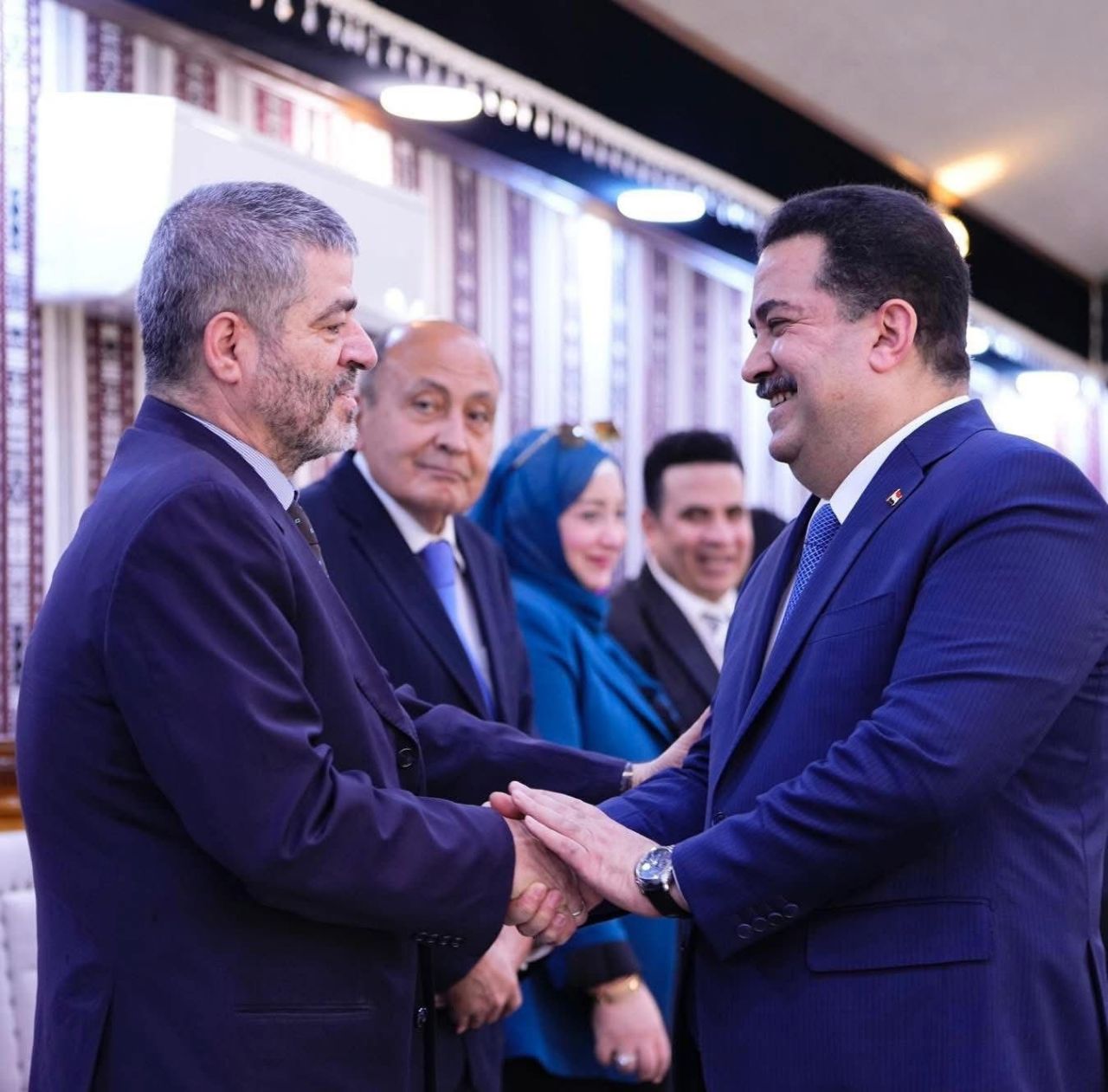
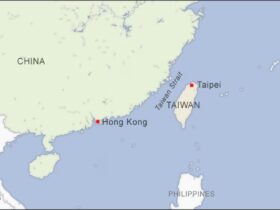

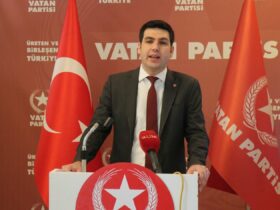
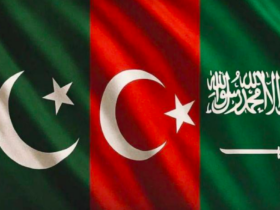
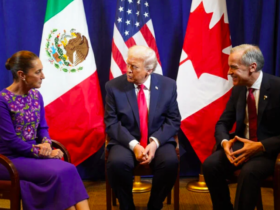
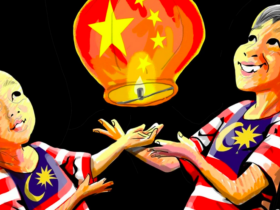
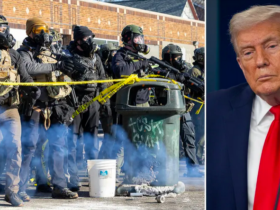
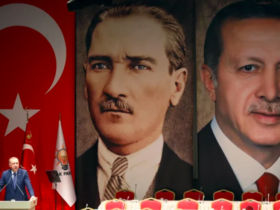

Leave a Reply